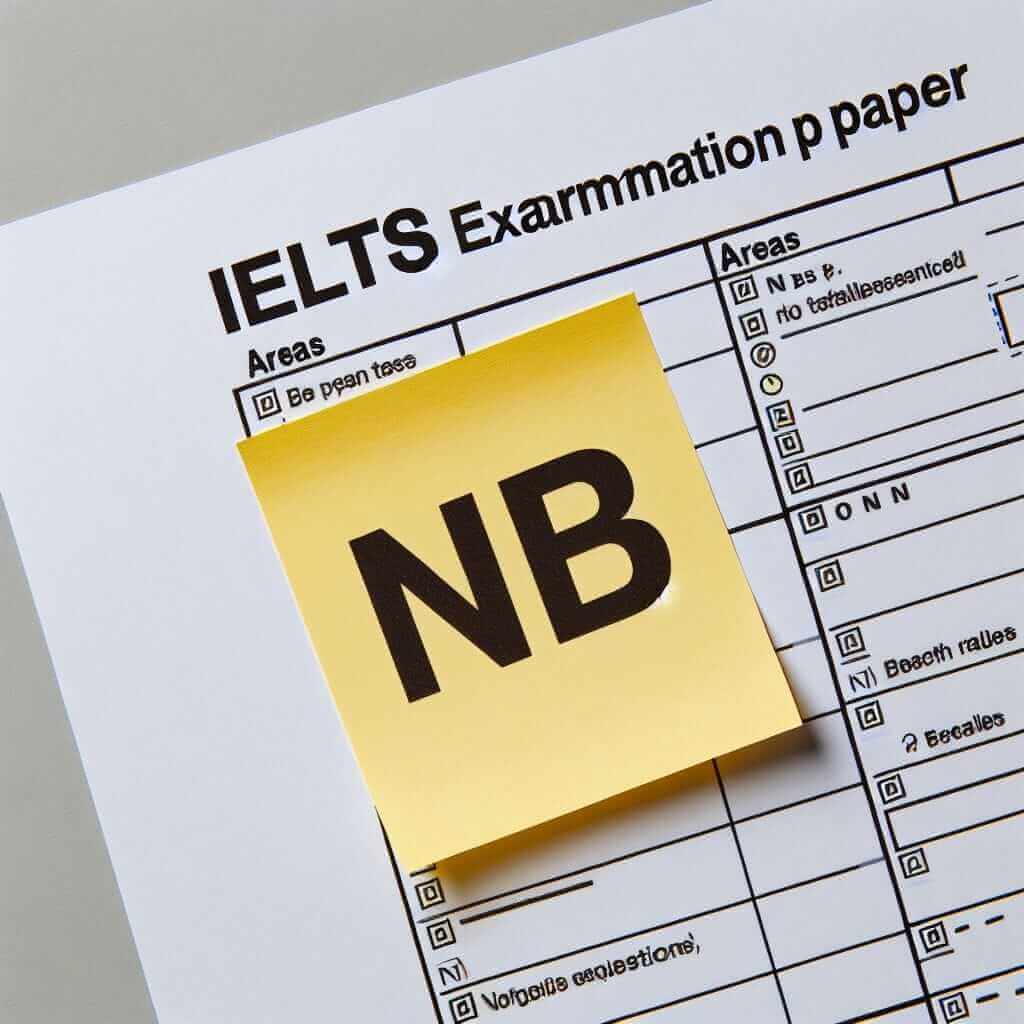As an IELTS instructor with over two decades of experience, I’ve encountered countless queries from students regarding the nuances of the exam. One recurring question pertains to the abbreviation “NB” often seen in IELTS materials. While seemingly insignificant, understanding its meaning can be crucial for your IELTS journey.
What Does “NB” Stand For in IELTS?
“NB” simply stands for “Nota Bene,” a Latin phrase that translates to “note well” or “pay attention.” It’s a signal used by examiners and IELTS material creators to highlight crucial information, reminders, or exceptions that candidates should pay close attention to.
The Significance of “NB” in Your IELTS Preparation
Think of “NB” as a friendly reminder from the test makers, urging you to take note of something important. Ignoring it might mean missing out on:
- Key instructions: “NB” might precede specific instructions for a task, time limits, or word count requirements.
- Clarifications: It could clarify a confusing point or provide further details about the task.
- Exceptions to rules: Sometimes, “NB” highlights exceptions to general grammar or vocabulary rules.

“NB” in Action: IELTS Examples
Let’s illustrate its importance with a few examples:
Example 1:
You should spend about 20 minutes on this task.
NB: You will be penalized if you write less than 150 words.
Example 2:
Use a formal tone in your letter.
NB: While contractions are generally acceptable in informal writing, it’s advisable to avoid them in formal letters for the IELTS.
Tips for Handling “NB” in Your IELTS Exam
- Be Alert: Develop a habit of actively looking for “NB” while practicing and during the actual exam.
- Read Carefully: When you encounter “NB,” slow down and thoroughly read the information following it.
- Internalize the Information: Don’t just skim over it. Make sure you understand and remember the highlighted point.
Conclusion
Though a seemingly small detail, understanding the significance of “NB” in IELTS can be the difference between a well-prepared candidate and one who misses out on crucial information. Remember, attention to detail is key in the IELTS exam. By staying vigilant and paying attention to these cues, you’ll be one step closer to achieving your desired score. Good luck!